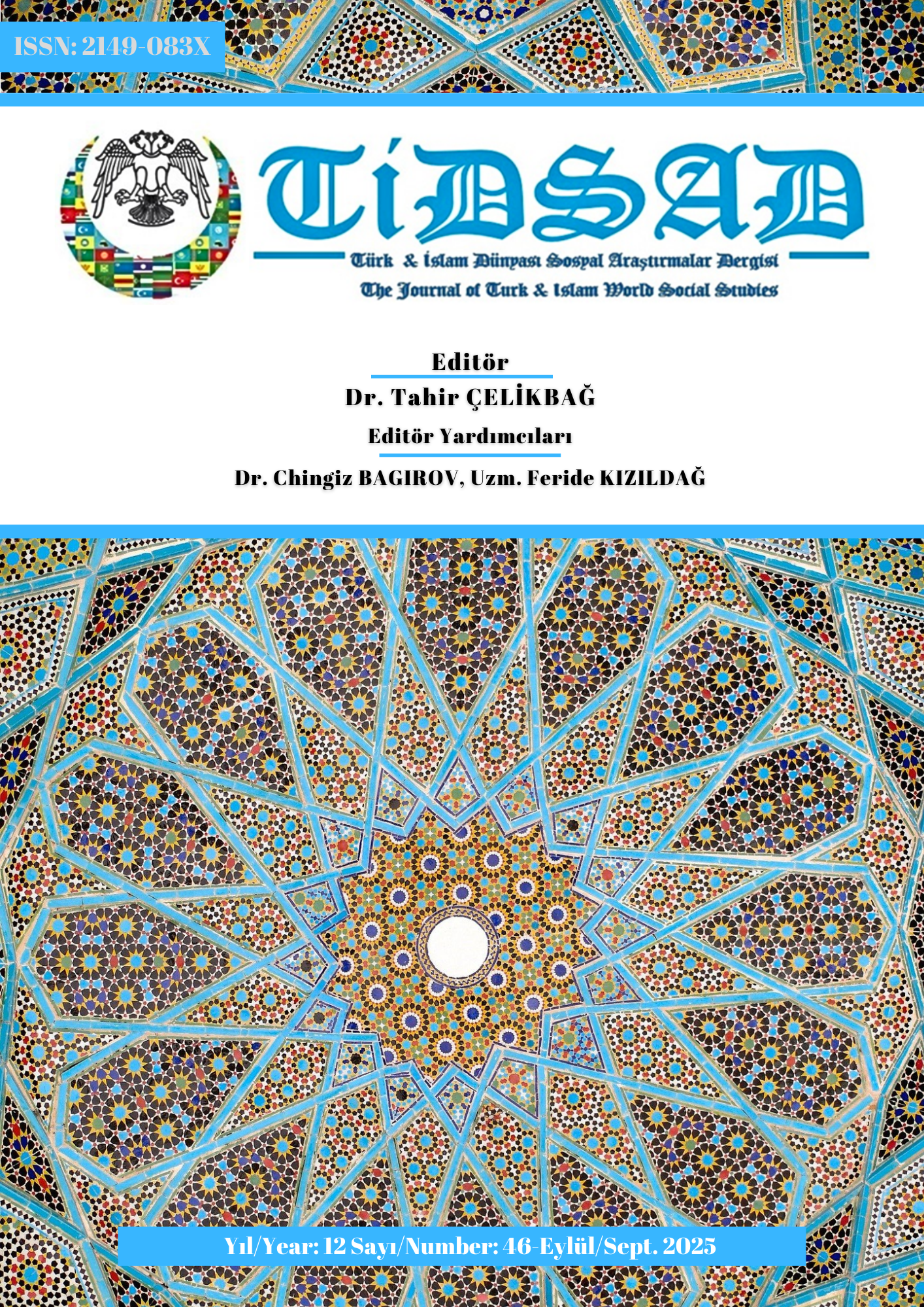Metin Temelli Sorular ve Teknoloji Destekli Kelime Öğretimi: Öğrenci Deneyimleri Üzerine Nitel Bir Çalışma
Author :
Abstract
Bu araştırmada, ortaokul öğrencilerinin metin temelli sorularla desteklenen teknoloji tabanlı kelime öğretimi sürecine ilişkin deneyimleri incelenmiştir. Çalışma, nitel araştırma yöntemlerinden biri olan olgubilim desenine göre yapılandırılmıştır. Araştırmanın çalışma grubunu, 5., 6., 7. ve 8. sınıf düzeylerinden gönüllülük esasına göre belirlenen toplam 36 öğrenci oluşturmaktadır. Veriler, araştırmacılar tarafından geliştirilen yarı yapılandırılmış görüşme formu aracılığıyla toplanmıştır. Görüşme formunun geçerliliği ve güvenirliği, alanında uzman iki akademisyen tarafından değerlendirilerek sağlanmıştır. Elde edilen veriler içerik analizi yöntemiyle çözümlenmiş, önceden belirlenen temalara göre kodlanmış ve bulgular tablolar halinde sunulmuştur. Araştırma bulguları, öğrencilerin kelime öğretimi sürecine ilişkin anlam kurma stratejilerini, teknoloji kullanımına yönelik algılarını ve öğrenme sürecine dair deneyimlerini içermektedir. Öğrencilerin kelime anlamlarını metin bağlamından çıkarma, karakterle ilişkilendirme ve duygusal tonlamayı fark etme gibi stratejiler kullandıkları belirlenmiştir. Ayrıca teknoloji destekli uygulamaların öğrencilerin motivasyonunu artırdığı, oyunlaştırma ve görsel-işitsel öğelerin öğrenmeyi kalıcı hale getirdiği saptanmıştır. Bununla birlikte, teknik aksaklıklar ve dikkat dağınıklığı gibi olumsuzlukların da süreci etkilediği görülmüştür. Araştırma sonuçlarına göre, metin temelli sorularla desteklenen teknoloji tabanlı kelime öğretimi, öğrenciler açısından hem bilişsel hem de duyuşsal açıdan zengin bir öğrenme deneyimi sunmaktadır.
Keywords
Abstract
This study examines the experiences of middle school students regarding vocabulary instruction supported by text-based questions and technology. The research was designed using the phenomenological pattern, one of the qualitative research methods. The study group consisted of a total of 36 students from 5th, 6th, 7th, and 8th grades, selected on a voluntary basis. Data were collected through a semi-structured interview form developed by the researchers. The validity and reliability of the interview form were ensured through evaluations by two field experts. The collected data were analyzed using content analysis, coded according to predetermined themes, and the findings were presented in tables. The research findings include students’ meaning-making strategies related to vocabulary learning, their perceptions of technology use, and their overall learning experiences. It was found that students employed strategies such as deriving word meanings from context, associating meanings with characters, and recognizing emotional tones. Additionally, technology-supported practices were observed to increase students’ motivation, and elements like gamification and visual-auditory support contributed to more permanent learning. However, it was also found that technical issues and distractions negatively affected the learning process. According to the results, vocabulary instruction supported by text-based questions and technology offers a rich learning experience for students both cognitively and affectively. It was concluded that students need teacher guidance in the vocabulary learning process and that the teacher plays a critical role in directing the learning experience. This study examines middle school students' experiences with vocabulary instruction supported by text-based questions and technology. Designed using a qualitative research approach, the study involved interviews with 36 students from 5th to 8th grade. Data were collected through a semi-structured interview form and analyzed using content analysis. Findings reveal that students employ meaning-making strategies such as inferring word meanings from context, associating with characters, and recognizing emotional tones. Technology-supported applications increased students’ motivation and engagement, while gamification and audiovisual elements contributed to retention. However, some negative aspects such as technical issues and attention loss were also noted.





